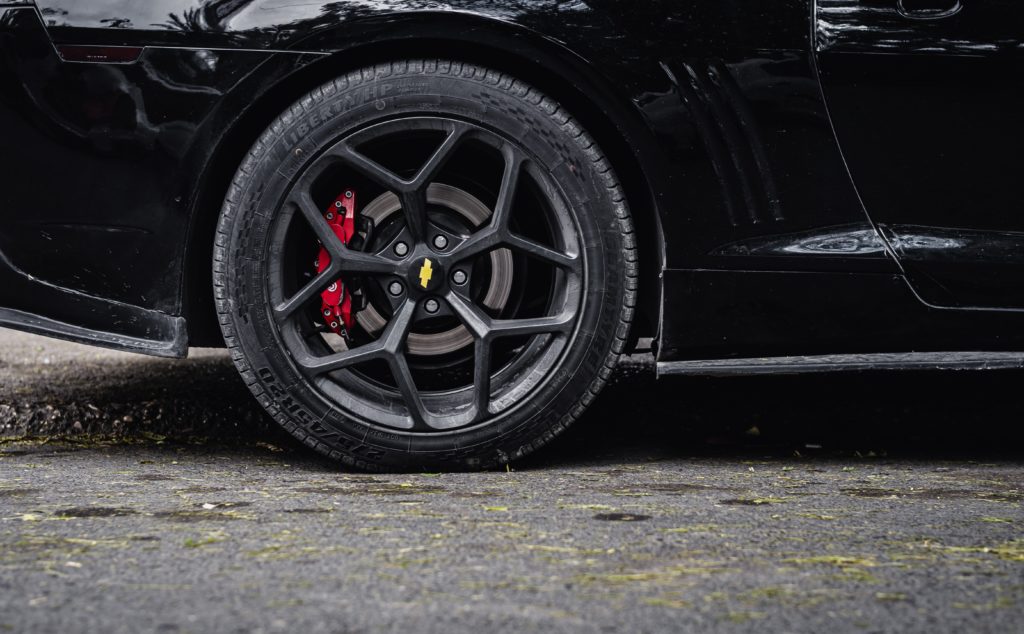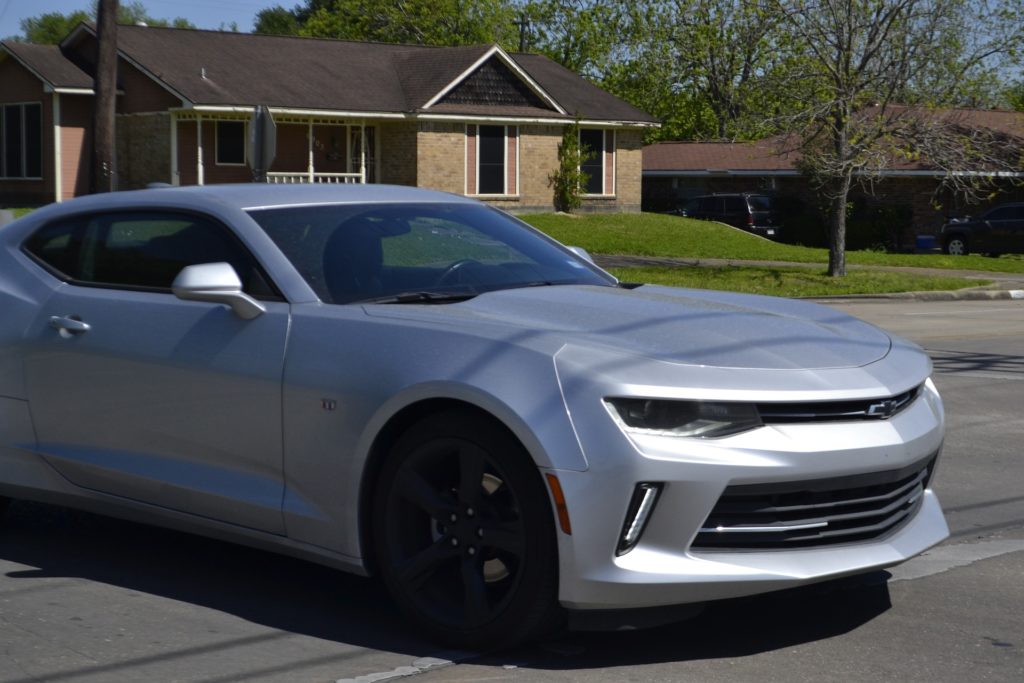Wheel reconditioning is never a good idea in collision repair.
Nearly every car manufacturer releases Position Statements explaining what methods of auto body repair they do or do not recommend. While some shops disregard these statements, we take a fine-tooth comb to the information they provide so that we can provide the best possible repair for every vehicle that comes through our doors.
In the case of wheel reconditioning, GM has issued a Position Statement clearly discouraging this practice in any Chevrolet repairs. If you are not familiar with wheel reconditioning, it is a process of using various tools and methods to try to repair a damaged wheel, instead of replacing it entirely. Some methods include welding, reforming, or reshaping the wheel.
Here’s what they say:
“GM does not endorse any repairs that involve welding, bending, straightening or re-machining. Only cosmetic refinishing of the wheel’s coatings, using recommended procedures, is allowed. In evaluating damage, it is the GM Dealer’s responsibility to inspect the wheel for corrosion, scrapes, gouges, etc. The Dealer must insure that such damage is not deeper than what can be sanded or polished off. The wheel must be inspected for cracks. If cracks are found, discard the wheel. Any wheels with bent rim flanges must not be repaired or refinished.”
The problem with reconditioning methods, such as heating, welding, and reshaping, is that these techniques could compromise the structural integrity of your wheels. If a wheel is damaged enough to warrant reconditioning, then it should just be replaced outright.
Being the only parts of the car to actually make contact with the road, your wheels are essential to your safety and are worth investing the proper time and energy into. It is simply not worth the risk to your life to take chances with the condition of your vehicle’s wheels.

Why does GM approve of wheel refinishing?
While wheel reconditioning is not approved of by GM, certain cosmetic repairs are fine. It’s important that the wheels are carefully inspected first for any cracks, gouges, or bending.
GM says:
“A refinisher’s responsibility includes inspecting for cracks using the Zyglo system or the equivalent. Any cracked wheels must not be refinished. No welding, hammering or reforming of any kind is allowed. The wheel ID must be recorded and follow the wheel throughout the process in order to assure that the same wheel is returned. Material removal, though, must be kept to a minimum. Re-machining of the wheel is not allowed. Paint and/or clear coat must not be present on the following surfaces: the nut chambers, the wheel mounting surfaces and the wheel pilot hole. The refinisher must permanently ID stamp the wheel and warrant the painted/clear-coated surfaces for a minimum of one year or the remainder of the new vehicle warranty, whichever is longer.”
As you can see, GM provides very clear instructions for the procedures we must follow while inspecting and refinishing your Chevy’s wheels. If the damage is something that can easily be sanded or painted, then refinishing is acceptable. If the damage is more than superficial, then the wheels must be replaced.
Superficial cosmetic adjustments are allowed, since they won’t jeopardize the integrity of the wheel structure. Minor sanding and polishing repairs do not involve the use of heat or reshaping that reconditioning would entail.

Not all shops follow these recommendations, but we do.
It’s disappointing, but some shops throw caution out the window and continue to practice wheel reconditioning, despite GM’s adamant recommendation to avoid this practice at all costs. They can get away with this because no body shop is actually forced to adhere to a manufacturer’s Position Statement.
At our shop, we strongly believe that there’s no reason to take a chance with your Chevy’s repair by going against the advice of the manufacturer. Reconditioned wheels can lead to very dangerous problems down the road. We will always replace your Chevrolet’s wheels entirely if they’ve sustained significant damage or we will follow proper refinishing methods if the damage is cosmetic. You won’t have to worry about driving on unstable wheels when you bring your vehicle to us. We always follow the manufacturer’s recommendations in order to deliver the safest possible repair to our customers.


